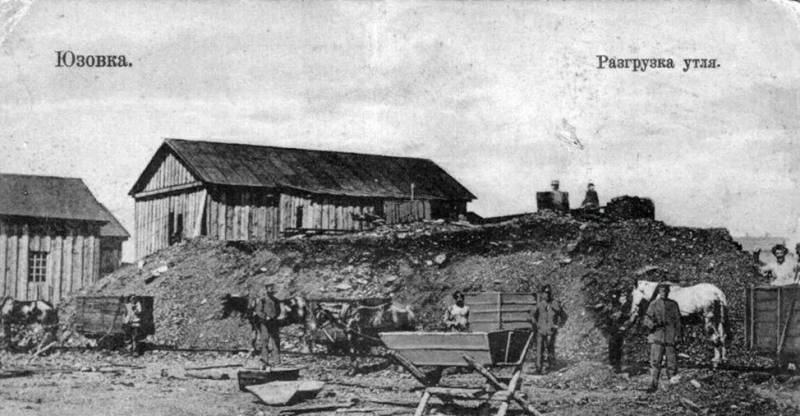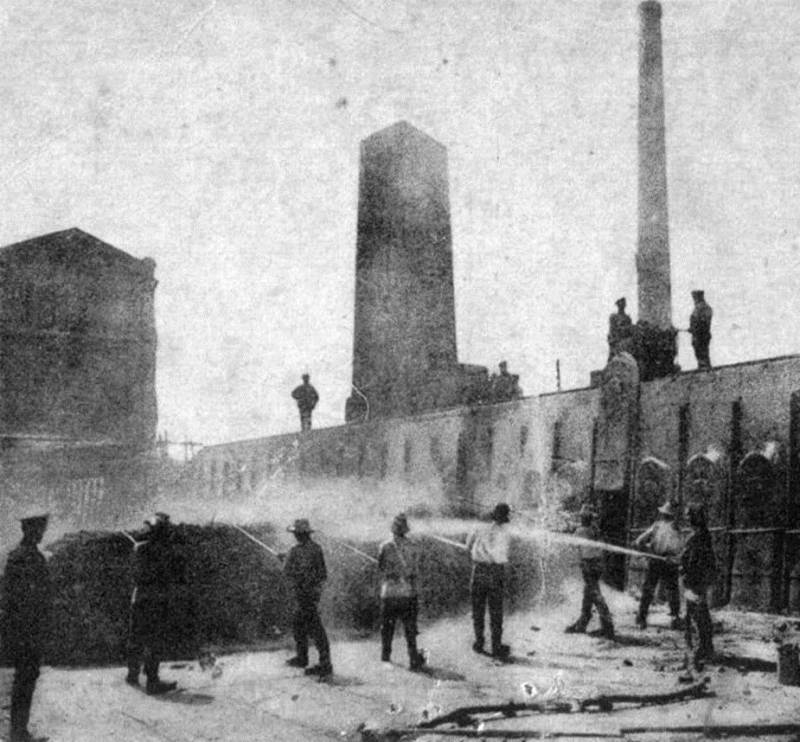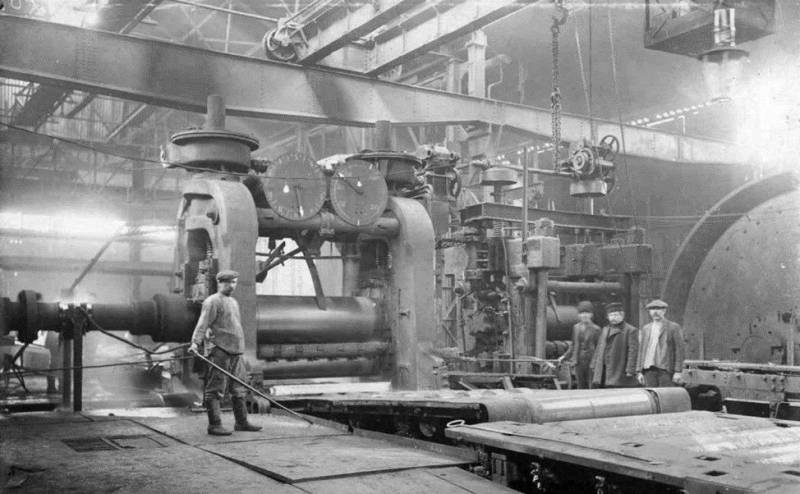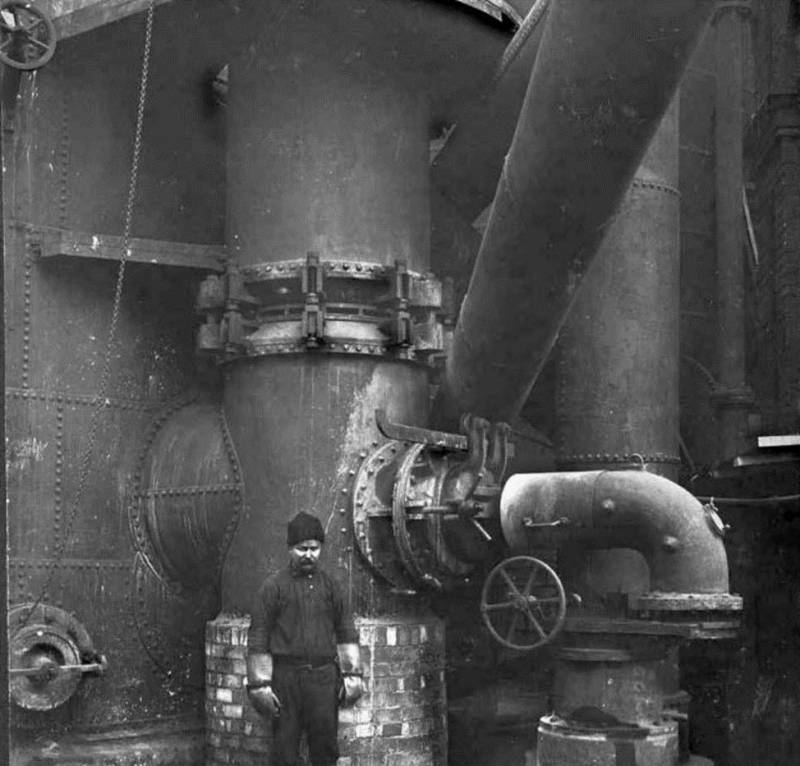Formation of the proletariat of Donbass in the second half of the XNUMXth century

After the abolition of serfdom, the workers of the landlord enterprises began to return to agriculture en masse. This further aggravated the crisis state of enterprises and forced the landowners to switch to a civilian form of labor.
On March 8, 1861, Alexander II approved the "Regulations on the mining population of state-owned mining plants", according to which workers were forever exempted from compulsory service at factories. This exemption also applied to their offspring. In order to prevent a mass outflow of workers to the countryside, they were given small household plots of land (up to 1 tithe). So the government intended to keep workers in the factories.
Growth in the number of workers
The coal industry of Donbass in the first post-reform years, as before the reform, was served mainly by seasonal workers. As of 1866, only 348 jobs were employed in the small landlord and peasant mines of the western Donbass, while up to 3 people worked annually in the mines of the Grushevsky district, who came mainly from the Kursk, Tula and Oryol provinces and worked only in the autumn winter period. In the spring and summer, many mines stopped their work due to a shortage of workers.
Thus, by the beginning of the 1870s, there was a limited number of skilled workers in the Donbass - about 2 people.
In the 1870s, after the emergence of the Yuzovsky and Sulinsky metallurgical plants, the number of workers increased several times and by 1880 was already about 16 people.
The rapid development of industry in the Donbass in the 1880s-1890s further contributed to attracting workers to the industry. Attracting new workers to the Donbass ran into a number of obstacles. This is the low population of the region in this period, and the predominantly agricultural nature of the local population, and the lack of locally trained personnel, and the proximity to areas of capitalist agriculture.
Foreigners also appear among the workers of Donbass. So, in 1864, 6 workers from Silesia were discharged to the Petrovsky plant under construction, and in 1869 John Hughes brought 70 skilled workers with him from England. However, the total number of foreign skilled workers was small, they were highly paid and stood out sharply from the general mass of workers.

Coke cooling at the Yuzovsky plant
The worsening situation of the peasants contributed to the increase in the number of workers in the Donbass. The ruined peasants of many provinces, in order to somehow survive, went to the factories and mines of Donbass, as a result of which the industry of the region was replenished with new workers, and the peasants received a livelihood.
Use of child labor
However, hard work in industrial enterprises had its negative sides. So, as a result of exhausting work, workers quickly lost their health, it took only 15 years for an old man endowed with many diseases to emerge from a healthy guy. This has become one of the reasons for the increase in the use of child and adolescent labor. For meager wages, children and teenagers who came to the enterprises performed auxiliary work.
Children, like adults, were brought to the mines and factories of Donbass by extreme need. When applying for a business, they overestimated their age, and the owners of enterprises benefited from their work, since children were paid much less than adults. L. A. Lieberman, who worked in the Donbass for many years, wrote that in the mines of the region you can see whole crowds of boys:
Since children are much worse adapted to difficult working conditions than adults, the mortality rate among them was also higher.
In metallurgical plants, children were used mainly for cleaning and lubricating the boilers of steam engines. Minors accounted for up to a quarter of all workers at the enterprises of the Belgian society of Donetsk glass factories.
Over time, the number of children among the workers of Donbass only increased. Thus, during the pre-revolutionary twenty years (1897-1917), the number of children among workers increased by 3,2 times, the number of women by 4,5 times.
National composition
As for the national composition of the workers of Donbass in this period, it directly depended on the place of their origin. The vast majority of workers were from the central provinces of the country and from the Left-bank Ukraine. Therefore, the formation of the working class of Donbass took place at the expense of Russians and Ukrainians.
A more accurate picture of the national composition of the workers can be seen from the materials of the All-Russian population census of 1897. According to these data, in the industry of Donbass, Russians accounted for 74%, Ukrainians - 22,3%. Belarusians, Tatars, Poles, Moldavians, Jews were much less represented. There were also small numbers of foreign workers at the metallurgical plants, mainly British (at the Yuz plant), Belgians, Germans, and French.

Sheet-rolling shop of the Yuzovsky Metallurgical Plant
Personnel
One of the most important indicators was also the high rate of formation of the cadre of workers. At the end of the XNUMXth century, hereditary workers of the Lugansk factory already existed. After its closure, workers move to other enterprises in the region and work there as skilled workers. It was Lugansk skilled workers who became the main part of the Yuzovsky and Sulinsky factories.

Blast furnace gasman
An insignificant part were skilled workers from the central provinces of the country, as well as from the Urals. There were also metalworkers from Poland. Nevertheless, the bulk of the working masses were yesterday's peasants, who left the village en masse. Some of them, having earned money, returned back, while others settled in new places forever. Zemstvo officials wrote about this:
As you can see, in the metallurgical industry, personnel was formed relatively quickly.
Things were much more complicated in the coal industry. Due to difficult working conditions, which led to high mortality, for a long time the Donbass mines did not have permanent personnel. Workers got jobs in the mines only for a while (as a rule, for winter-spring), after which they returned to their villages.
A significant obstacle to the formation of the cadre of miners was the desire of local capitalists to get the maximum benefit at any cost. Many of them deliberately hired unskilled workers, since their labor was much cheaper. They also saved on the mechanization of mines.
All this was the main reason that until the beginning of the 70th century, up to XNUMX% of miners were unskilled and seasonal workers. And only at the beginning of the XNUMXth century, when the flow of skilled workers from Moscow, St. Petersburg and other central cities increased, a permanent staff began to form among the miners of Donbass.
Information